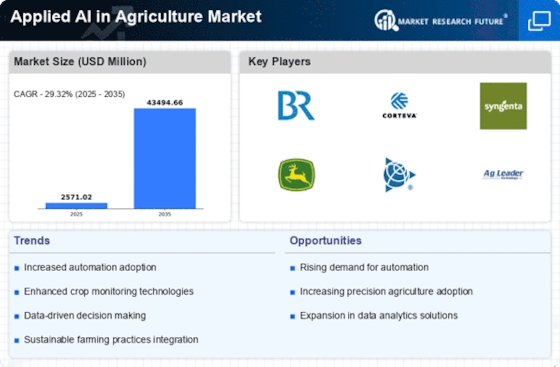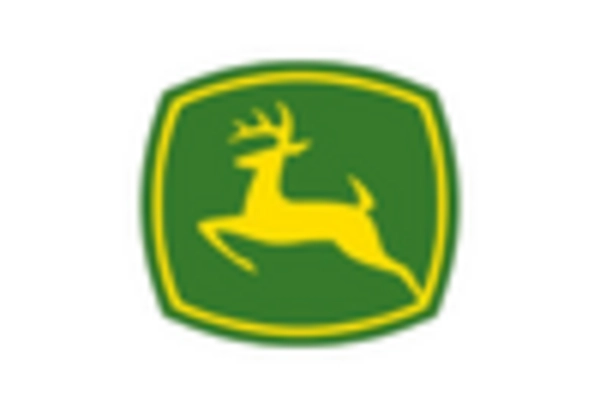Market Share
Applied AI in Agriculture Market Share Analysis
As a result, we have seen changes that have transformed the Applied AI in Agriculture market as technology is being used in solving challenges and improving processes within the industry. The use of AI applications in various aspects of agriculture has been one key growth area for this segment in recent times. This is evidenced by the high number of farm owners who are increasingly using Artificial Intelligence tools to monitor crops, predict yield and carry out precision farming. This trend is consistent with increased efficiency, resource optimization and sustainable agricultural practices that are sought after by the sector.
Also, there has been an increasing focus on crop health monitoring and disease identification within the Applied AI Market on Agriculture. By combining sensor data with satellite imagery and drones’ movements, AI powered systems can detect early symptoms or signs associated with diseases affecting crops or nutrient deficiencies or pest attack. Hence it contributes a lot towards achieving better crop yields, reduce chemical dependence as well as quick response on protecting crops.
Another remarkable drift is the merge between artificial intelligence algorithms and predictive analytics in agriculture. Weather trends, historical statistics, and soil status are analyzed by AI applications to provide precise suggestions on crop yields, optimum planting times and challenges that may be faced. This movement is the most important as it involves data driven choices for farmers making them plan better and work better in their farms.
Furthermore, there has been an upsurge in autonomous farming technologies within the Applied AI in Agriculture market. For instance, planting, harvesting precision spraying are some of the tasks being performed with use of robotics based on AI principles. This trend signifies a transition from traditional farming methods towards automated systems that can address issue of labor scarcity while reducing costs.
In this respect, the market has seen a shift towards AI-based watering devices due to increased demands of water saving techniques for agriculture. The devices use sensor data alongside weather prognosis to determine how much water should be used at what time for irrigation purposes. It is an encouraging development in sustainable water management whereby plantations can be watered efficiently avoiding wastage.
Additionally, smart farming platforms have emerged within the Applied AI in Agriculture market that combine IoT devices with artificial intelligence (AI). These platforms enable farmers to monitor different aspects of their operations remotely. From knowing about how healthy the soil or crop conditions plus equipment status is too, real-time insights from Ai-driven smart farming solutions empower farmers with relevant information for decision-making.



















Leave a Comment